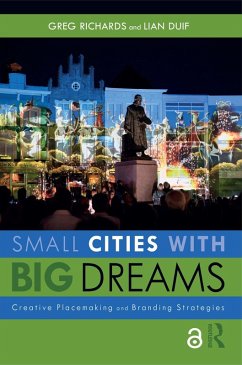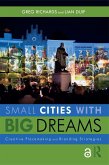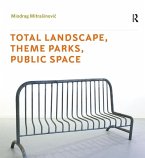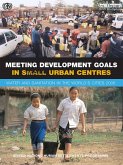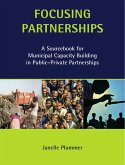How can small cities make an impact in a globalizing world dominated by 'world cities' and urban development strategies aimed at increasing agglomeration? This book addresses the challenges of smaller cities trying to put themselves on the map, attract resources and initiate development.
Placemaking has become an important tool for driving urban development that is sensitive to the needs of communities. This volume examines the development of creative placemaking practices that can help to link small cities to external networks, stimulate collaboration and help them make the most of the opportunities presented by the knowledge economy. The authors argue that the adoption of more strategic, holistic placemaking strategies that engage all stakeholders can be a successful alternative to copying bigger places. Drawing on a range of examples from around the world, they analyse small city development strategies and identify key success factors.
This book focuses on the case of 's-Hertogenbosch, a small Dutch city that used cultural programming to link itself to global networks and stimulate economic, cultural, social and creative development. It advocates the use of cultural programming strategies as a more flexible alternative to traditional top-down planning approaches and as a means of avoiding copying the big city.
The Open Access version of this book, available at http://www.taylorfrancis.com, has been made available under a Creative Commons Attribution-Non Commercial-No Derivatives (CC-BY-NC-ND) 4.0 license.
Placemaking has become an important tool for driving urban development that is sensitive to the needs of communities. This volume examines the development of creative placemaking practices that can help to link small cities to external networks, stimulate collaboration and help them make the most of the opportunities presented by the knowledge economy. The authors argue that the adoption of more strategic, holistic placemaking strategies that engage all stakeholders can be a successful alternative to copying bigger places. Drawing on a range of examples from around the world, they analyse small city development strategies and identify key success factors.
This book focuses on the case of 's-Hertogenbosch, a small Dutch city that used cultural programming to link itself to global networks and stimulate economic, cultural, social and creative development. It advocates the use of cultural programming strategies as a more flexible alternative to traditional top-down planning approaches and as a means of avoiding copying the big city.
The Open Access version of this book, available at http://www.taylorfrancis.com, has been made available under a Creative Commons Attribution-Non Commercial-No Derivatives (CC-BY-NC-ND) 4.0 license.
Dieser Download kann aus rechtlichen Gründen nur mit Rechnungsadresse in A, B, BG, CY, CZ, D, DK, EW, E, FIN, F, GR, HR, H, IRL, I, LT, L, LR, M, NL, PL, P, R, S, SLO, SK ausgeliefert werden.

